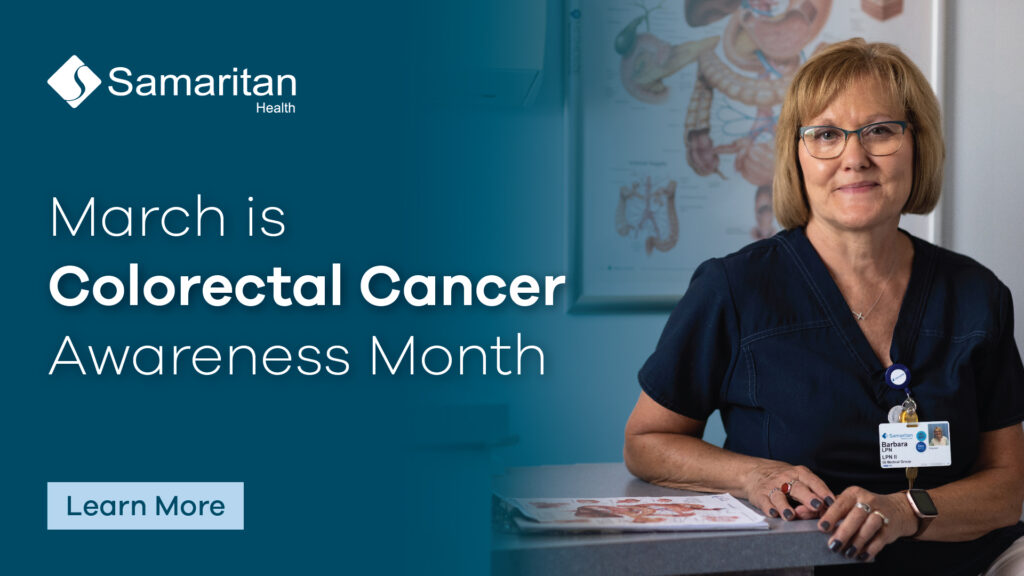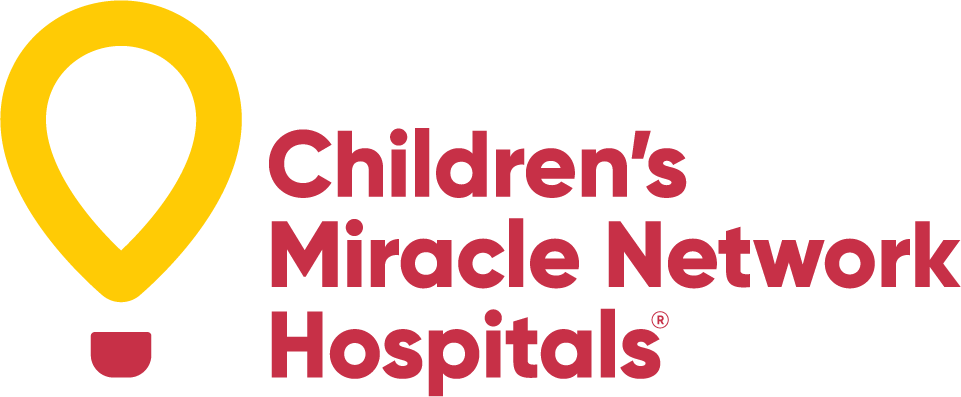Let Samaritan help with your colorectal health
Published on: March 6, 2024
This year, the American Cancer Society estimates the occurrence of 106,590 new cases of colon cancer (54,210 in men and 52,380 in women) and nearly 46,220 new cases of rectal cancer (27,330 in men and 18,890 in women).
These are large numbers. Excluding skin cancers, colorectal cancer is the second-most common cancer diagnosed in both men and women in the United States. But along with these estimates comes a glimmer of good news: since the mid-1980s, the rate of people being diagnosed with colon or rectal cancer has dropped each year with incidence rates dropping around 1% every year from 2011-2019. Why? Mainly because more people are changing the way they live to limit risk factors and getting colon screenings when suggested.
These are two key steps to take, and throughout March’s Colorectal Cancer Awareness Month and beyond, both should be taken to maintain good colorectal health.
But it doesn’t end there. Being proactive in coordination with your primary care physician and a gastroenterology specialist can help you stay ahead of any colorectal concerns or alleviate problems when they arise. For those in the North Country or nearby, the professionals throughout the Samaritan Health System can assist with these colorectal needs.
“Our team understands the importance of proactive colorectal care,” says Tom Carman, president and CEO of Samaritan Medical Center. “We know what to look for, where to refer patients for further evaluation and, in some cases, how to treat. The first step: schedule a visit with us, and let us help you learn more about colorectal health.”

Understand colorectal health
Colorectal health includes disorders associated with the colon, rectum or anus, and can most commonly be detected through a colonoscopy. There is no single factor that can cause cancers or other colorectal diseases, but understanding common risk factors—concerning age, family medical history and lifestyle—can help maintain good health.
To understand these factors or signs and symptoms of colorectal issues, a good place to start is with your primary care physician. After obtaining a referral for a gastroenterologist, they may suggest a colonoscopy which is an exam used to look for changes in the large intestine (colon) and rectum.
Those age 45-75 have a higher than average risk of colon cancer, so if you fall in this demographic, now’s the time to schedule your colonoscopy or screening.
If caught in its earliest stages, colon cancer can be treated much more effectively, or dangerous polyps can be removed to prevent cancer from ever occurring in the first place.
Samaritan’s Gastroenterology Clinic in LeRay offers two board certified physicians, a seasoned physician assistant, and a nurse practitioner. The clinic boasts early morning appointments as well as appointments past 4 p.m. to help accommodate patients. Located conveniently on U.S. Route 11, the team specializes in routine colonoscopy screenings, esophagogastroduodenoscopy (EGD), polyp removal, acid reflux, iron deficiency anemia, and more. The caregivers are compassionate about the work they do and the patients they care for.
Colon cancer treatment
Surgery may be an option when colorectal cancer is identified, and Samaritan has four general surgeons who are trained and experienced in colorectal care. Many of these surgical cases can be performed with the da Vinci robotic system. This state-of-the-art approach can lessen a patient’s stay in the hospital, minimize postoperative pain, and shorten recovery for some patients. Samaritan’s general surgeons are here to provide care to patients early in their diagnosis, giving them the best and most optimal treatment.
Another option for some patients if colon cancer is detected, Samaritan’s Walker Center for Cancer Care can provide cutting-edge treatments and supportive services through its integrated team, or expert guidance from affiliated medical oncology providers like Buffalo’s Roswell Park.
But again, the key to colorectal care is to be proactive. Maintain a healthy lifestyle. Get screenings when necessary. Talk with your primary care physician when concerns arise. This is where Samaritan can assist to support any patient’s concerns.
“Your Samaritan primary care physicians are there to answer your questions, provide treatment, and lead you forward in the healthiest way possible,” says Carman. “Connect with them, and let each be your guide.”
To learn how Samaritan Health can aid in your colorectal health, visit samaritanhealth.com and explore the gastroenterology, general surgery, and cancer services.
###

